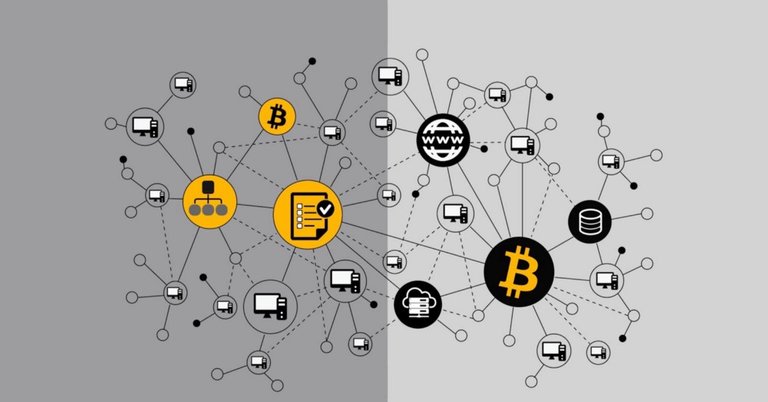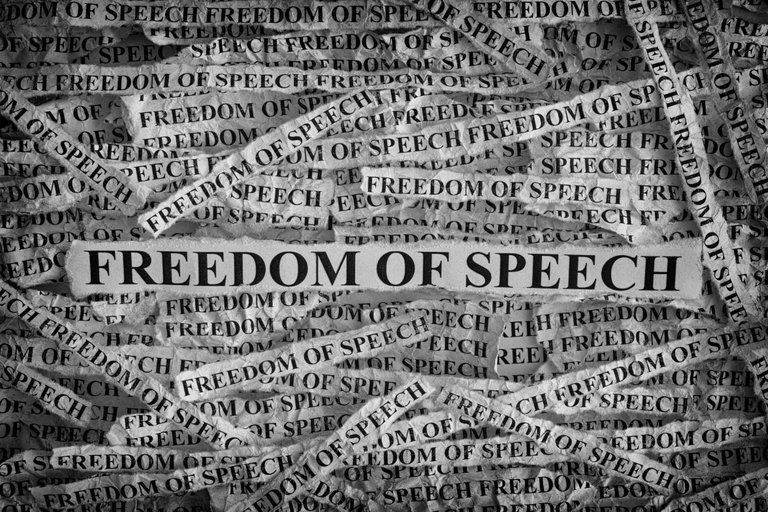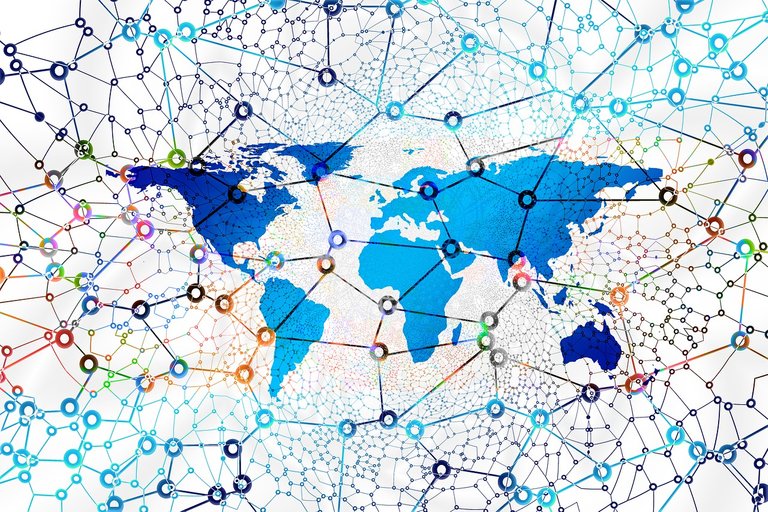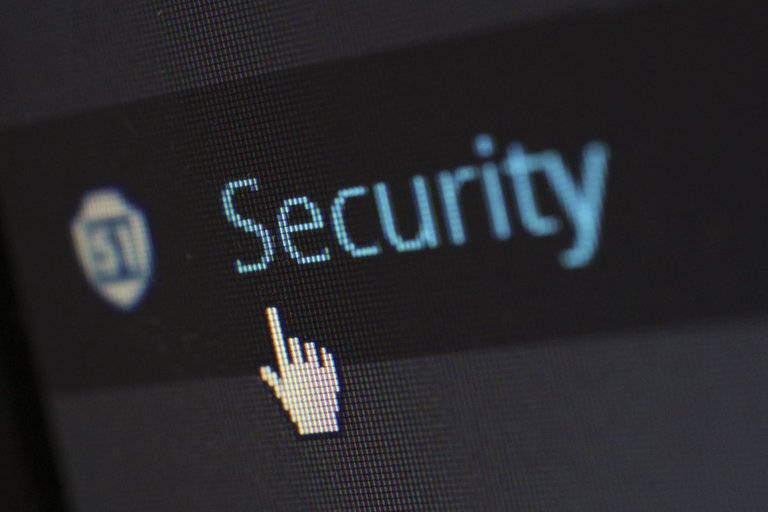Decentralized Internet (Web 3.0): The New Generation of the Internet
Disclaimer: This paper was written as an English essay. After few days of searching, I came up with this small brief article. This paper demonstrates the impotence of decentralization. I removed the references links due to obtaining them from college's database. So, I am leaving articles' titles with their writers. Enjoy reading.
P.S. as a result, I got high marks in both this paper and my presentation of my thoughts regarding internet decentralization which came before writing this paper.
Introduction
“Decentralized consensus technology will reach the mainstream when products are built that both empower consumers to take control of their own data and also offer users great UXs.” Nick Tomaino. In the late 1960s, the Internet was invented. Then, the internet has become a public domain for everybody in 1993. It has been almost 28 years of significant changes since then. The internet is currently one of the most essential inventions in our lives. Texting, obtaining information, and entertainment all take place on the internet. If we compare the internet to the virtual world (internet), then both must have liberties for everybody. Although some individuals are looking for acquiring their personal freedom on the internet through the decentralized internet, it is important to understand: firstly, the meaning of freedom of speech; secondly, censorship and loss of democracy; thirdly and the most important is the benefits of the decentralized internet or decentralized services on the internet against the centralized one; finally, the Security of decentralized Internet, and its applications.
Freedom of Speech Right
People need to realize the value and importance of freedom of speech. The term “Freedom of Expression” was invented by the US, but it had another name before the present one, and it was called “Freedom of Press for Political Criticism” and “Freedom of Religion” in England (Schauer, 2014). Later, freedom of speech was adopted by US in 1791 as part of the first amendment until it became a case of speakers in 1919 (Schauer, 2014). Simply, this is real life term of freedom of speech. Regarding freedom of speech on the internet, several people refer to it as internet freedom while others may call it something else. Basically, it appears not to have a specific name, which means anyone can use any name as long as it refers to the main meaning. Freedom of speech is vital as a right before it becomes a good deed. Indeed, people have the right to freedom of speech that gives them the opportunity to seek the truth and to make decisions related to politics without violating the balance of society. As a result, it gives them the ability to share thoughts with each other to reveal the truth. Sharing ideas as called “marketplace of ideas” makes people able to cooperate with each other to get the truth or to determine a community’s future.
Censorship and Loss of Democracy
The issue that we face every day when we surf the internet and leave comments on tweets on Twitter or on videos on Youtube is well known. Immediately, after a person places that comment, it gets deleted due to their censorship policy. In a matter of moments, after a person places that comment, it is removed due to the site's censorship policy. For example, your comment gets deleted when you promote a video streaming platform on Youtube other than Youtube. Most of the time, censorship on the internet is done by high authorities to keep or remove the truth on the internet, especially those that harm them either locally or globally, with the assistance of social media platforms. Additionally, they employ many methods to achieve their objectives, including arresting activists and truth seekers by using their electronic armies. In Vietnam, many activists have been imprisoned for having online activities which are against Vietnamese government policies (Barenberg, 2019). This is one practice. Another practice relating to censorship development is that nations are constantly seeking new ways to strengthen their censorship mechanisms. A comprehensive 2018 report by Freedom House says that in the last two years, thirty-six countries sent representatives to China to learn new censorship technologies to employ those techniques on their citizens. Additionally, 18% bought new surveillance technology (Barenberg, 2019). We should be aware that such platforms as Twitter and Facebook censor our content. Obviously, everyone faced it such as a posted content gets removed.
Decentralization Mechanisms and Protocols
Social media networks are centralized because they control everything, so any content posted on their sites can be censored or banned if it does show truth such as political facts. Also, for example, if a government requests its citizens’ data, these social media platforms give that information to that government. Otherwise, a social media platform is banned in a particular country. So, these centralized platforms have no respect for individual privacy as they claim. The solution for all this chaos is moving to decentralized platforms. Decentralized internet (Web 3.0) is a system that relies on decentralized platforms controlled by more than one entity or individual, whereas centralized internet (Web 2.0) employs centralized systems controlled by entities, governments, and decision-makers. In fact, dictatorial countries prefer the centralized internet to show their people only the content that they want them to see. Only a limited number of people in North Korea have access to websites with strict restrictions (Chen Kyungmin, & Ji-Yong, 2010). Privacy in Centralized internet is an illusion. North Korea also imposes strict restrictions on the use of the internet and monitors all internet activities with the assistance of the local internet service providers (ISPs) (Chen, & Lee, 2010). On the other hand, the reason for sticking with the decentralized internet is because it solves privacy concerns and censorship issues. Supporters of decentralization have pointed to blockchain as a solution to decentralize the internet. A blockchain network is a peer-to-peer network that runs by dozens of computers that each one has a copy of a specific distributed ledger (Alabdulwahhab, 2018). There are 4 consensus designs or systems of blockchain technology, but this paper is going to demonstrate the differences between the main 3 briefly. The first one is “Proof of Work” which is “Mining”. Mining is validating transactions on the network, and as a result, a validator gets rewards for its work (Kremenova, & Gajdos, 2019). For instance, Bitcoin and Ethereum. Secondly, compared to Proof of Work, “Proof of Stake” uses a digital signature to verify a transaction as opposed to running your device for it (Kremenova, & Gajdos, 2019). In addition, a user stake or lock a specific number of tokens in a wallet to start validating transactions (Kremenova, & Gajdos, 2019). The more people stake, the more a network becomes decentralized. This is the new vision of Ethereum 2.0. Finally, “Delegated Proof of Stake” which it depends on a network’s witnesses such as Hive (Steem fork). They are nominated by the members of a community to validate transactions in a network. In general, blockchain technology has certain limitations, which means that in order to solve this problem, other protocols were required to enlarge blockchain and build a wholly decentralized service (network). The most known one is InterPlanetary File System (IPFS) As described in the white paper “IPFS is a peer-to-peer distributed file system that seeks to connect all computing devices with the same system of files” (Alabdulwahhab, 2018). Therefore, IPFS protocol resolves the storage issue. The final aspect is decentralized applications (Dapps). Simply, decentralized applications are services or games built using the mentioned decentralization technologies. For example, there is a video streaming service called 3speak. Basically, it is similar to Youtube. However, they are building a decentralized video streaming network that rewards its validators. This is a significant step forward internet decentralization or as known as web 3.0. the vision of web 3.0 is the user becomes the owner of his or her data. The user hosts his or her data such as posts, videos, and images. No one can remove them, and every aspect related to user privacy is contained by the user himself or herself. In fact, there is a video streaming platform similar to YouTube, called 3speak. However, 3speak developers are working on a decentralized network that rewards its network validators. Once it goes live, every video on the platform is hosted by its users themselves.
The Security of Decentralized Internet, and Applications
Security is the most vital thing in terms of protecting users’ privacy, funds, and data. There is no such thing as a fully secure platform, even the big social media platforms are vulnerable. However, decentralized networks and applications are less vulnerable. Moreover, both are usually open-source projects. So, anybody can contribute to improving the security of an application. In contrast to the current social media platforms, users can share their thoughts with a specific community to provide updates for the decentralized application. Copeland (2020) said that Steem, the DPOS blockchain (also known as the decentralized social network) is operated by Steemit inc. Ned Scott and Dan Larimer were the founders of the project who misused the rewards pool to farm or generate more tokens. Later on, they realized what they are doing is a mistake, so they used the generated tokens to delegate and support projects (Dapps) built on Steem network. Those tokens were called the “ninja-mined” tokens. Last year, Steemit inc. was bought by Tron company. Justin Sun, the CEO of Tron company put his hands on the “ninja-mined” tokens to nominate his own accounts as the top witnesses of the network. So, his intention was to make Steem network centralized. The community kept fighting, but eventually, they decided to fork the chain (network) to a new one called Hive. Every community member had the same amount of their tokens on Hive (ratio 1:1), and the “ninja-mined” tokens were removed from Hive to prevent this scenario from happening again. Now, Hive is fully decentralized network. Furthermore, it has the ability to be a base a layer for decentralized applications easily. That’s how a decentralized network was secured. Regarding security in the centralized networks, it is worse than the decentralized networks. for example, a few days ago, Facebook has been compromised, with potentially over 533 million users whose personal information has been leaked (Wagner, 2021). This gives the decentralized networks a point. A hack on a decentralized system cannot affect every user of a decentralized application. Decentralized applications are operated by multiple users and each user has ownership of his or her information. For instance, if a user posted a comment, no one could remove that comment except the owner because the owner owns that comment. Centralized social media companies seem not interested in decentralizing their platforms. Their hunger is for money and collecting data. Even when their CEOs talk, they sound like politicians. A few days ago, an upcoming decentralized social network called BlueSky was mentioned by Twitter's CEO Jack Dorsey (CNET Highlights, n.d.). Most people think that Twitter is going to create a public API (Application Programming Interface) to give the developers the ability to build applications on it, and by doing this they are deceiving people into thinking that these applications are decentralized. Jack Dorsey was reading from a paper, which sounded like he did not understand the notion of decentralization. Perhaps, he was forced to make this announcement. Ultimately, they aim to profit from selling consumer information.
Complexity
Many people disagree with moving to the decentralized applications due to their complexity. Apparently, they will become easier soon. However, if a person is looking for freedom on the internet, he/she supposed to start from now and promote it. Also, the most important part is that the user is the owner. If there are developers who have ideas to ease the usage of decentralized applications, they can contribute to decentralized technologies. Most of them are open-source projects on Gitlab and Github.
Conclusion
In conclusion, freedom of speech, uncensored content, and the decentralization of the internet are necessary for internet freedom. Moreover, young people today are aware of the freedom of the internet notion. Thus, we can reach the goal quickly. Nonetheless, we still need to reach a broader audience by educating them on the topic of freedom of speech in addition to developing Dapps to enable uncensored content.
References
- Alabdulwahhab, F. A. (2018). Web 3.0: The Decentralized Web Blockchain Networks and Protocol Innovation. 1st International Conference on Computer Applications & Information Security (ICCAIS), 1-4.
- Barenberg, O. (2019). In the Shadow of the Great Firewall: Art and Internet Censorship in East and Southeast Asia. Harvard International Review, 40(2), 32-33.
- Chen, C., Ko, K., & Lee, J.-Y. (2010). North Korea’s Internet Strategy and Its Political Implications. Pacific Review, 23(5), 649–670.
- CNET Highlights. (March 25, 2021). The Future of Twitter & Misinformation: What CEO Jack Dorsey Thinks (BlueSky) [Video File]. YouTube.
- Copeland, T. (2020, August 18). Steem vs Tron: The Rebellion Against a Cryptocurrency Empire. Decrypt.
- Kremenova, I., & Gajdos, M. (2019). Decentralized Networks: The Future Internet. Mobile Networks and Applications, 24(6), 2016-2023.
- Schauer, F. (2014). Freedom of Speech. In E. Foner, & J. A. Garraty (Eds.), The Reader's Companion to American History. Houghton Mifflin.
- Wagner K., (2021, April 3). Facebook Data on 533 Million Users Reemerges Online for Free. Bloomberg.
K2X
Where the K impersonates the X.






I will be honest. I completely support the decentralized internet and the freedom of speech, but this article is just too long, so I did not read it. Probably many people have this approach. Shorter articles would be good for the Hive blockchain in my opinion.
It would be also interesting to know how many people have read this article completely. Probably not so much.
If you gonna complain about the length of that article, then you haven't read @taskmaster4450 and @edicted articles yet. Their articles demonstrates many aspects regarding many things in crypto industry and decentralization.
Anyway, this is not the case. In my opinion, we rarely see short articles that properly demonstrate ideas. Most likely, you've never read a book.
I am not attacking you or something like that. I am just saying. I suggest you to read more about these stuff as long as you are interested. You make create an idea after reading to build something.... Who knows
The more you read, the more ypu realize how decentralized internet work (or even anything else that you are interested in).
My article might be not a good one. However, you are still able to learn from it. If not, you can check my the references at the bottom of the article to learn more.
Anyway, thank you for being honest. I really really really appreciate that. Plus, thanks for stopping by.
See ya around.
Peace.
Actually I read a lot of books. Mostly fantasy books.
Those are my favorites. Both in English and in Hungarian.
I can finish a 500 pages English book in 2-3 days.
I finish the same length in Hungarian in 1-2 days.
And I remember the story, the characters, the world months and years later. I even play with them in my head.
This is how much I like this genre.
I respect your views, but you should not judge me (nor anyone else) at first sight.
Hungarian is very far from English (it is not even Indo-European, like English), but I still managed to understand and communicate with it.
My bad lol. I was just guessing no judge. I knew many people that do like ready stories and they can finish them within few days like you which is cool thing.
I am just giving you an advice as friend. If you really interested in something and you wanna learn more, read read read until you get it. As long as you are interested in decentralization stuff, I believe you can learn more about it in a short time (like finishing those stories)
Wish you all the best. If you need any help don't hesitate to contact me on discord. I'll be so happy to help you ;)
Discord: K2X (ex cityofstars Member)#8381
You are right about this. For example there are multiple books about the philosophy behind open source, so you can read multiple books about the same topic.
Have some !PIZZA for the friendly conversation.
@k2x! I sent you a slice of $PIZZA on behalf of @xplosive.
Learn more about $PIZZA Token at hive.pizza